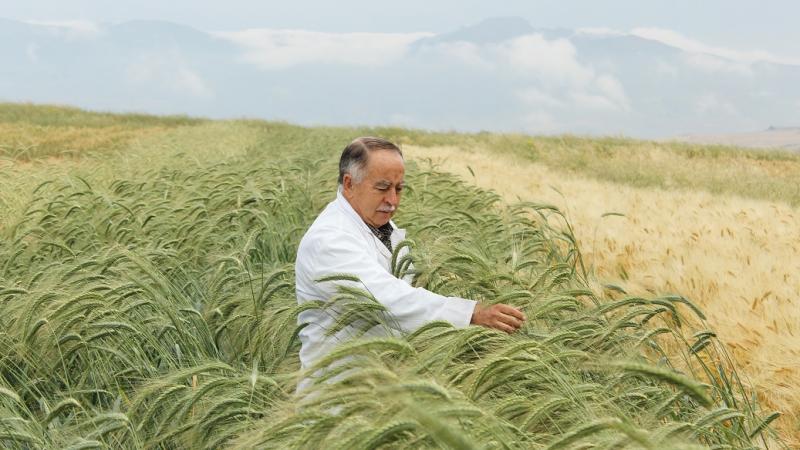World Food Day: Migration crisis requires investments in food security

Although the factors driving migration are diverse, we should not ignore food insecurity. On World Food Day we argue that one solution to the migration crisis is a sustained effort to strengthen the resilience of agriculture against a back-drop of rising temperatures and increasing water scarcity.
Conflict and instability are widely seen as the principal factors driving the migration crisis – but food insecurity, poverty and extreme weather events linked to climate change such as drought also play an important role.
According to the UN’s Food and Agriculture Organization (FAO) three-quarters of the extreme poor depend on agriculture or other rural activities for their livelihoods.
Strengthening resilience and raising productivity against a back drop of rapid climate change, and encouraging people to pursue livelihoods where they originate, therefore needs to be a crucial part of any strategy to stem migrant flows.
Effective and sustained rural development can strengthen food security, improve livelihoods, create new enterprises and employment opportunities, enhance access to social protection, reduce conflict over natural resources, and deliver solutions with the potential to reverse environmental degradation.
Resilient agriculture: a solution to the migration crisis
Globally, a large number of migrants come from regions we know well – including the Middle East, North Africa and Central Asia – where most poor and food-insecure people depend on agriculture and natural resource-based livelihoods. These dry and fragile regions are highly vulnerable to the effects of climate change.
The Intergovernmental Panel on Climate change predicts that over the coming decades these marginal areas will experience higher temperatures, more frequent drought, and increasing water scarcity. In the Middle East and North Africa, for instance, climate change will exacerbate pressures on the region’s dwindling water supplies – per capital renewable water resources are predicted to drop from 1100 m3/year to 550 m3/year by 2050.
The threat of climate change
What does this mean for agriculture and food production? In short, declining productivity, shorter growing seasons, and less cultivable land. If temperatures rise by 4 degress celsius, as some models predict, vast swathes of the dry areas would see their growing seasons cut by more than 20%.
ICARDA works in these arid and fragile regions to support farmers and address the many challenges they face, including: infertile and degraded land, endemic poverty, water scarcity and drought, and limited opportunities to access innovations and new technologies.
We tackle these challenges through the application of cutting-edge science, strategic partnerships and capacity development – an integrated approach that preserves and protects agricultural biodiversity, develops and disseminates resilient crops, strengthens value chains for diversified incomes, and promotes and implements strategies for the sustainable use and management of water and land resources.
Delivering practical solutions
ICARDA can point to several initiatives in recent years that offer resource-poor farmers practical and cost-effective strategies to raise their productivity and strengthen resilience. These include high-yielding and heat-tolerant wheat varieties that are thriving in sub-Saharan Africa and enhancing food security while reducing import dependence; and a fast-track crop research and rust-resistant seed distribution program that has successfully protected Ethiopian farmers from wheat rust epidemics.
An initiative funded by USAID is working across seven countries in the Middle East and North Africa to improve the management of scarce water resources – building on local knowledge and enhancing the capacity of national and regional partners; and with our regional partners in Central Asia we have developed and out-scaled sustainable land management practices capable of optimizing production and reversing degradation.
In Jordan ICARDA has initiated water harvesting and shrub rehabilitation schemes that lessen vulnerability to drought and give rural communities a helping hand to sustain livestock production and livelihoods in increasingly parched landscapes.
Finally, in Egypt, ICARDA is analyzing the genetics of goats and sheep indigenous to the drylands to determine how their genetic ‘fingerprints’ best suit them to be resilient in the face of climate change – a step towards mining the genetic potential of adaptable livestock that can mitigate against food security and instability in increasingly volatile climate events.
Lessons learned from these initiatives could inform the development of sustainable strategies elsewhere where efforts are also needed to enhance climate change mitigation/adaptation – and also reduce the numbers of people willing to risk their lives on perilous journeys to Europe and elsewhere.
